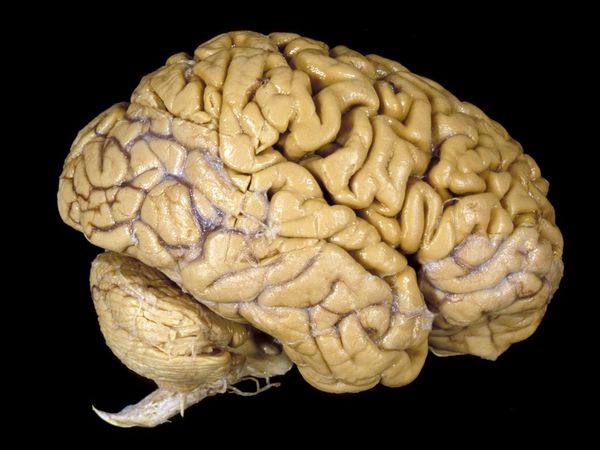According to a new study, the brain uses sleep to wash away the waste toxins built up during a hard day’s thinking.
The US team conducting the new research, believe the “waste removal system” is one of the fundamental reasons for sleep.
Their study, published in the journal Science, showed brain cells shrink during sleep to open up the gaps between neurons and allow fluid to wash the brain clean.
They also suggest that failing to clear away some toxic proteins may play a role in brain disorders.
It has been shown to have a big role in the fixing of memories in the brain and learning, but a team at the University of Rochester Medical Centre believe that “housework” may be one of the primary reasons for sleep.

The brain uses sleep to wash away the waste toxins built up during a hard day’s thinking
“The brain only has limited energy at its disposal and it appears that it must choose between two different functional states – awake and aware or asleep and cleaning up,” said researcher Dr. Maiken Nedergaard.
“You can think of it like having a house party. You can either entertain the guests or clean up the house, but you can’t really do both at the same time.”
Their findings build on last year’s discovery of the brain’s own network of plumbing pipes – known as the glymphatic system – which carry waste material out of the brain.
Scientists, who imaged the brains of mice, showed that the glymphatic system became 10-times more active when the mice were asleep.
Cells in the brain, probably the glial cells which keep nerve cells alive, shrink during sleep. This increases the size of the interstitial space, the gaps between brain tissue, allowing more fluid to be pumped in and wash the toxins away.
Dr. Maiken Nedergaard said this was a “vital” function for staying alive, but did not appear to be possible while the mind was awake.
[youtube 96aZtk4hVJM 650]
Human brain actually has 86 billion neurons, not 100 billion, as previously thought, according to a Brazilian neuroscientist.
With the help of colleagues, Dr. Suzana Herculano-Houzel found out the true figure in a rather grisly manner – by turning four brains into “brain soup” and counting the number of cell nuclei belonging to neurons.
The brains belonged to four adult males aged 50, 51, 54 and 71 who donated them to science and none had died of a neurological disease.
Dr. Suzana Herculano-Houzel told Nature: “We found that on average the human brain has 86billion neurons. And not one that we looked at so far has the 100 billion.
“Even though it may sound like a small difference the 14 billion neurons amount to pretty much the number of neurons that a baboon brain has or almost half the number of neurons in the gorilla brain. So that’s a pretty large difference actually.”

Human brain actually has 86 billion neurons, not 100 billion, as previously thought, according to a Brazilian neuroscientist
The figure came as a surprise because most textbooks and articles about neurons, which are nerve cells that carry messages around, agree that there are 100 billion of them in a human brain.
Dr. Suzana Herculano-Houzel, however, was unable to find out where this figure had come from.
Her study represents a leap forward for neuroscience, but it only came about after she had come to terms with making “brain soup”.
Dr. Suzana Herculano-Houzel told Nature: “It took me a couple of months to make peace with this idea that I was going to take somebody’s brain or an animal’s brain and turn it into soup. But the thing is we have been learning so much by this method we’ve been getting numbers that people had not been able to get.
“It’s really just one more method that’s not any worse than just chopping your brain into little pieces.”
Although her results mean our brain power has been downgraded, we still have superior minds to other primates because we have more neurons in the brain that are devoted to cognition – mental processes – and behavior as a whole.


